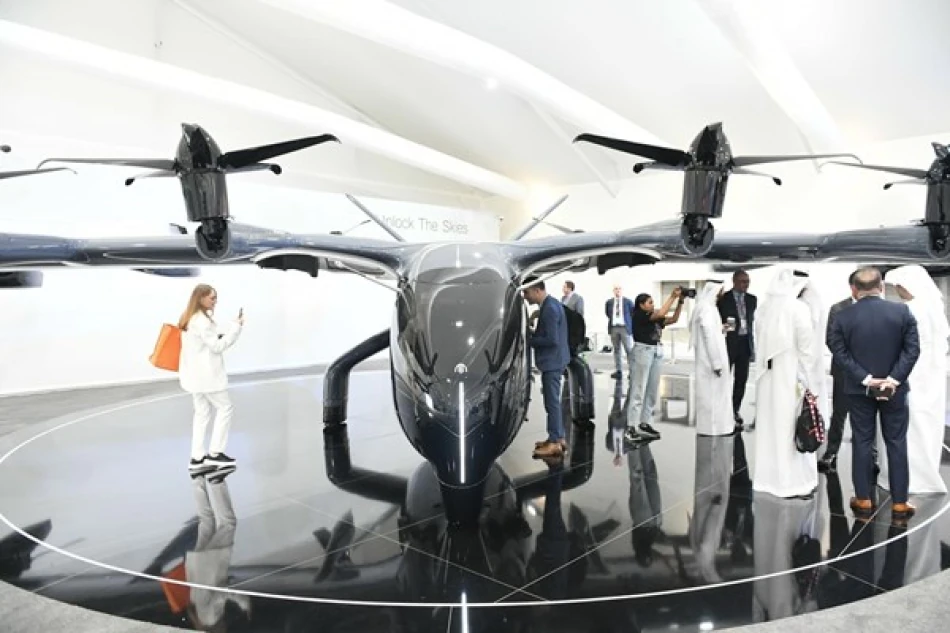
Dubai Airshow 2025: Redefining the Future of Advanced Air Transport
Dubai Positions Itself as Global Leader in Flying Taxi Revolution
The UAE is accelerating toward becoming the world's first commercial hub for electric flying taxis, with Dubai Airshow 2025 set to showcase the infrastructure and regulatory frameworks that will launch aerial ride-sharing services as early as next year. This ambitious timeline puts Dubai ahead of major competitors like Singapore and Los Angeles in the race to commercialize urban air mobility.
Dubai Airshow 2025: A Launchpad for Aviation's Next Chapter
Taking place from November 17-21, 2025 at Dubai World Central, the airshow will host over 1,500 exhibitors and more than 200 aircraft displays. The event's Advanced Air Mobility program represents the most comprehensive industry gathering to date, featuring 12 specialized tracks with over 350 expert speakers.
What sets this year apart is the tangible progress toward commercial operations. Unlike previous aviation shows that focused on concept vehicles, Dubai 2025 will demonstrate actual flying capabilities with electric vertical takeoff and landing (eVTOL) aircraft performing live demonstrations outside the exhibition grounds.
Market Leaders Converge on Dubai
The participation of industry giants Archer Aviation, Joby Aviation, and Inventx signals serious commercial intent. These companies aren't just showcasing prototypes—they're preparing for revenue-generating operations.
Anthony Khoury, General Manager of Joby Aviation UAE, emphasized that Dubai's focus on advanced air mobility "aligns with the global movement to provide communities worldwide with ideal flights characterized by quietness, speed, and sustainability."
Infrastructure Race Intensifies
Perhaps most significantly, Skyports Infrastructure is constructing the first commercial vertical airport near Dubai International Airport, with three additional vertiport locations planned across Dubai. This infrastructure development represents a $100+ million bet on Dubai becoming the global testing ground for urban air mobility.
Damian Kysely, EMEA Director at Skyports Infrastructure, noted that the UAE has "succeeded in pioneering the advanced air mobility landscape," positioning Dubai ahead of competing cities that are still in planning phases.
Why Dubai May Win the Flying Taxi Race
Dubai's advantage lies in three critical factors that have historically driven its aviation success:
Regulatory Agility: The UAE's streamlined approval processes contrast sharply with the complex regulatory environments in the US and Europe, where certification can take years.
Infrastructure Investment: Unlike cities that are retrofitting existing transportation networks, Dubai is building vertiports from scratch, optimizing for efficiency and passenger experience.
Market Demand: Dubai's wealthy population and tourist influx create ideal early adopters willing to pay premium prices for time-saving aerial transport.
Global Implications for Urban Mobility
If Dubai successfully launches commercial flying taxi services in 2026, it will fundamentally shift the competitive landscape. Cities like Los Angeles, Singapore, and London—currently developing their own programs—may find themselves playing catch-up to Dubai's first-mover advantage.
The economic implications extend beyond transportation. Success in Dubai could attract billions in additional investment to the UAE's aviation sector, potentially establishing the country as the Detroit of flying cars—the global manufacturing and innovation hub for urban air mobility.
For investors and aviation companies, Dubai Airshow 2025 represents more than an exhibition—it's a preview of the commercial aviation landscape that could emerge within the next five years, with the UAE leading the transformation from science fiction to daily reality.
Most Viewed News

 Layla Al Mansoori
Layla Al Mansoori






